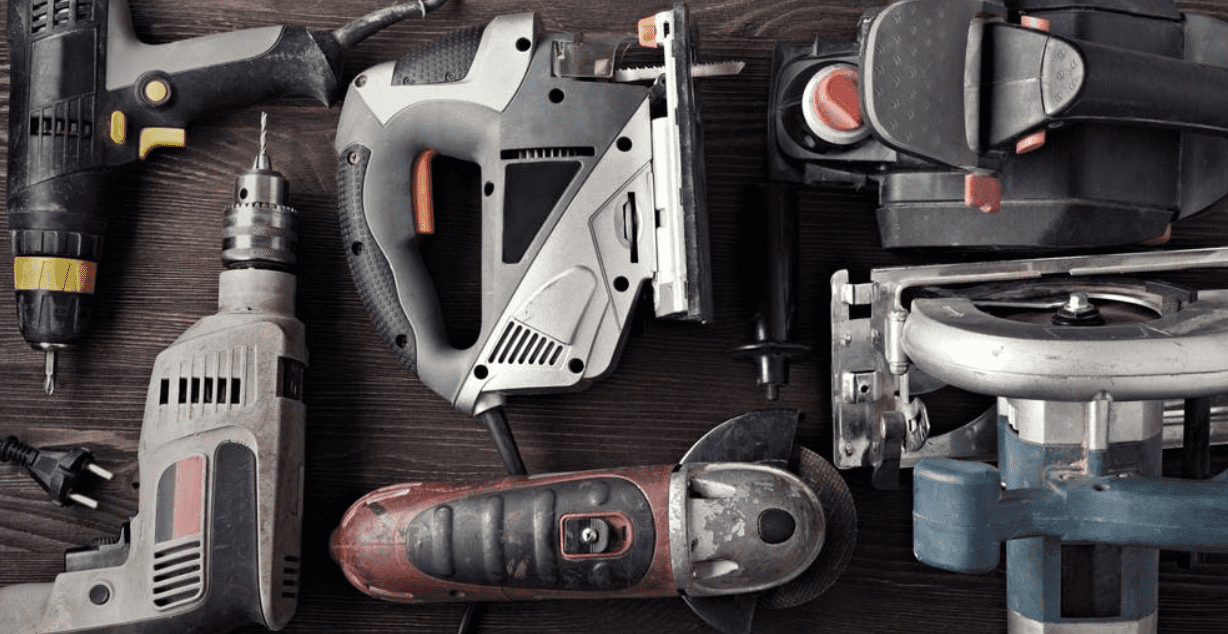
Lots of beginners in the woodworking space often dismiss the idea after taking a look at their budget and list of power tools likely needed to get started on the projects.
Fortunately, you don't have to break the bank to purchase these tools. As a matter of fact, you only need about five woodworking tools to help with most DIY projects. On top of that, they are relatively inexpensive.
Nevertheless, with these five woodworking tools for every beginner to help tackle almost any woodwork projects.
Circular Saw
One of the must-have in any workshop is a circular saw. This portable and versatile tool will serve your woodworking well for many years to come. It's suitable for ripping plywood, MDF, and other sheet goods, cross cutting lumber, and cutting circles, especially for beginners.
While they are available in two types, we prefer the cordless circular saw because these models do not restrict to the power outlet and make it easier to work with. Also, you should consider some other accessories that will come in handy when using the circular saw such as straight-line ripping rig for cutting straight lines.
More importantly, a good quality blade is a must have if you don't want to spend all day cutting. In our opinion, we recommend you purchase a general all-purpose blade to allow you to cut a wide range of materials without tearing out much.
In addition, you should consider owning a blade with a higher tooth count if you'll have to cut melamine or plywood.
Table Saw
This tool isn't ideal for beginners. Professionals or those who are already comfortable with using circular saw, random orbit sander, and jigsaw should use the table saw – this can not be overemphasized. However, it's one of the significant tools to own.
In every woodworking shop, this power tool is always the heart and soul, which means it's the centerpiece and determines how to organize and use other woodworking tools. This tool is best used to cut the sheet well without rough edges.
Not just that, the table saw let you make any cut, including dado grooves, bevels, miters, and so on. However, it's crucial that you opt for a table saw that works well with your budget. Nevertheless, you shouldn't dismiss the idea of investing in these tools, as they will remain the heart and soul of your workshop for many, many years to come.
Also, you don't want to just up at every expensive option that comes your way. Ensure that you check out the features and choose a model that fits your needs and budgets.
Jig
Another essential woodworking tool is the jigsaw. This tool is a necessity for all beginners. The jigsaw let users cur circular and curved patterns in stock. But for cutting thicker stock or want more accurate, you should consider a band saw.
Keep in mind that the band saw is not ideal for beginners to use. In our opinion, we recommend purchasing the orbital-action, corded model for versatility, better handling and grip, and hassle-free blade-changing system.
Nailer gun
Avid DIY lovers or seasoned professionals understand how important owning the right power tools for their woodwork projects is, especially if you'll be nailing wood you need the best nailer gun. While the old-fashioned way of hammering nails still works, using the very best nailer gun makes it easier, faster and safer. You don't have to worry about smashing your thumbs.
So, if you have a demanding task, then going for an efficient and reliable nailer is a smart decision. Nail guns help drive nails accurately and consistently. Besides, these power nailers require low maintenance and are simple yet effective to use.
However, when trying to purchase the right tool, you need to consider some factors, including the brand, type of nail guns (brad guns, pinners, finish guns, framing guns and grease guns), and many more. For the Best Cordless Framing Nailer reviews & Buying Guide, you can check https://www.thesawlab.com/best-cordless-framing-nailer/
Sander
The fifth essential primary power tool to own as a beginner is a sander. The palm sanders come with a low price tag and allow you to cut into quarter sections using the plain sandpaper. However, the random orbit model features a hook-and-loop sanding disk, which leaves no patterned scratches – something other sanders versions can't boast of.
More so, you need to check out with your local woodworking supplier readily if the sanding disks are readily available in various grits and fit your sander. Keep in mind that you need to opt for finer grits to let you sand properly.
Conclusion
The above woodworking buyer's guide is meant to help people feeling overwhelmed by the long list of tools they think their workshop should feature. This can be frustrating considering the amount of money you would have to shell out.
Nevertheless, we've carefully handpicked and discussed 5 woodworking tool you need to know about to get you started in your workshop.





